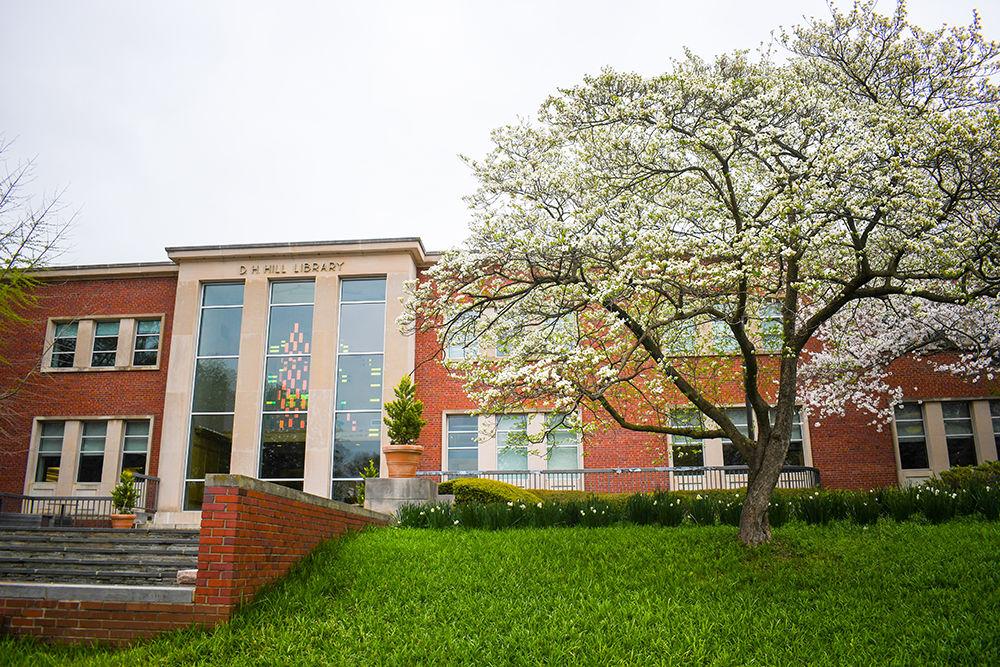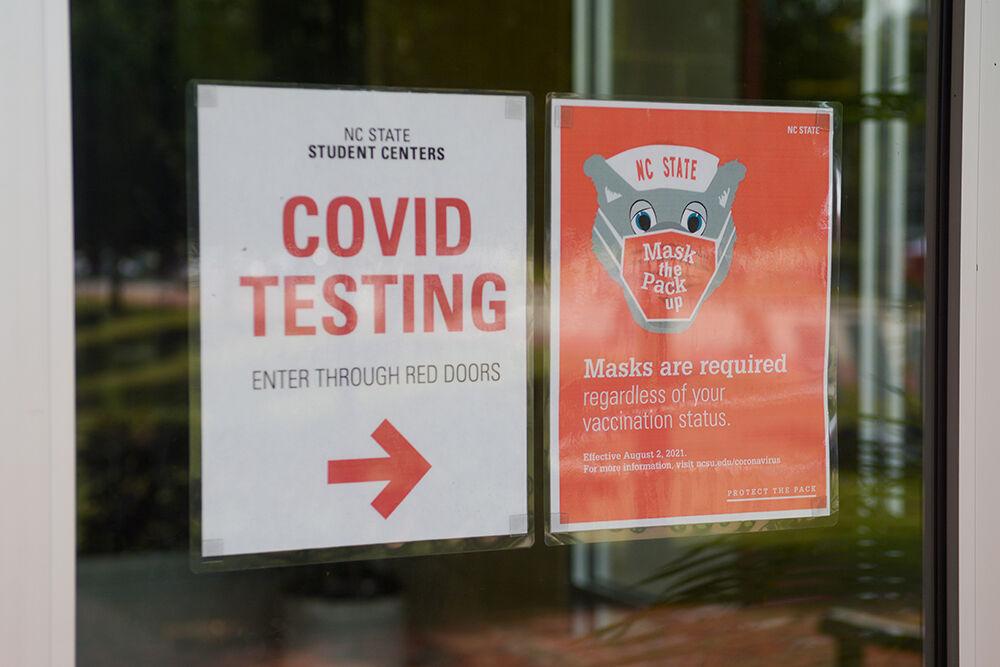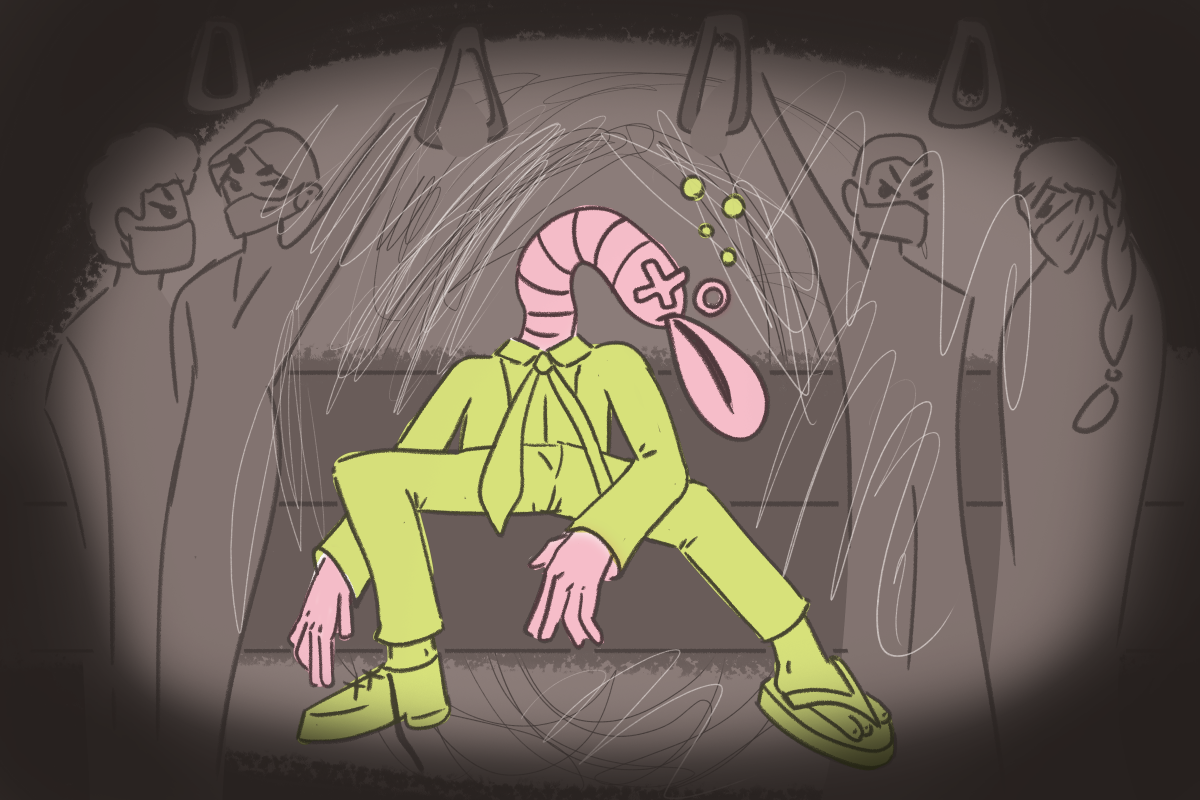With NC State only allowing mandatory employees on-campus, many students do not have the same access to campus resources they once had. NC State University Libraries has decided to switch many of its services to remote access, so students can use resources from home.
According to Gregory Raschke, senior vice provost and director of libraries, initial discussion on providing students with on-campus technology began in early March after spring break’s extension. During this time, NC State University Libraries prepared around 400 computers to be available for long-term lending. Of these laptops, 280 were taken from already existing labs and classrooms not utilizing them, 100 were newly ordered by NC State and the remainder were switched from short-term to long-term lending. Other technology, such as cameras and maker kits were also switched to long-term lending.
“We had been doing short term lending of technology for 20 years or so, but the long-term infrastructure was helpful because we had all the systems set up,” Raschke said. “We didn’t have to create a new class of lending; we didn’t have to change a lot of things. We just had to reimage the computers so they could be taken off campus basically.”
While the demand for remote technology has been incredibly high, Raschke noted University Libraries was not experiencing any shortages. Due to NC State purchasing more technology for checkout as part of the COVID-19 response, University Libraries avoided what would have been a drastic shortage of technology available for students to check out.
Ashley Morrison, interim department head of University Libraries Access Services, explained the changes NC State University Libraries implemented to tackle textbook availability.
“Previously, we did not offer scans of chapters or pages of textbook or reserves since those were available on a limited checkout basis and we wanted to keep them available for anyone who wanted to physically check them out as frequently as possible,” Morrison said. “What we’ve basically done at this point is flip. Now all of our scanning is for textbooks and reserves, and we aren’t scanning from the rest of the physical collection because we have limited staff available to do that on site.”
Morrison stated prior to the COVID-19 response, scans at the libraries were mostly limited to selections of books physically available at libraries or stored at Hunt. With many other university libraries either not physically working or having limited workers, the interlibrary checkout system, Tripsaver’s, functions have gone down, with physical rental and delivery suspended. The scanning request process has also changed, with the University Housing website now providing access to a Google Form where students can request their scans.
“Software availability has been an interesting challenge, and Photoshop is one in particular that comes up a lot,” Morrison said. “The way that that worked before was that one would have to come in the library because the licenses are computer-specific, instead of person-specific, but what we’ve been able to do since then, working in partnership with campus, is providing student-level licenses.”
Raschke and Morrison said NC State University Libraries was working extensively with the Office of Information Technology to extend licenses for students and staff to use. NC State University Libraries has also started providing consultation appointments in case students and staff are having difficulties with installing or using available software. Not all software is available remotely on laptops, with some of the libraries’ software using powerful desktops to run.
With the uncertainty of an on-campus return in the upcoming fall semester, NC State University Libraries has started scenario plans on what course of actions could be taken in case campus is not open at the time, and safety measures to implement if students and staff return.
“We’re also renovating D.H. Hill Library, with construction still being an essential task,” Raschke said. “We’re hoping and planning for an opening in fall with students largely back on campus, and we have some scenarios where if that doesn’t happen, we’ll be prepared and all of this remote technology and work will really be ready for the fall. There may be some things that look a little different; we might space out some of the chairs a little bit and make some modest adjustments to the way we clean some of the spaces such as cleaning shared keyboards, so we’ll certainly adjust some of the ways we operate and hopefully be prepared to open up.”
For more information, visit the NC State University Libraries website.













